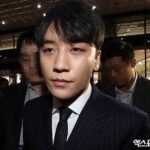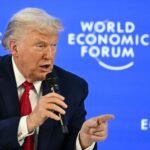Korea Zinc executives and employees at a press conference to protest MBK’s potential takeover in Seoul on Sept. 24, 2024 (Photo by Bum-June Kim)
An unprecedentedly high number of South Korean corporations have become targets of unwanted hostile takeover attempts or been embroiled in management disputes following the ascent of local activist funds and private equity firms over the past two decades.
According to regulatory filings to DART, the Financial Supervisory Service’s (FSS) electronic disclosure system, on Sunday, 73 companies have been in 242 disputes over management since the beginning of this year, up 10.5% from the same period of last year.
This is the record high number of management disputes in Korea since the related data started to be compiled in 2000.
Especially, feuds at the country’s main Kospi market-listed companies have jumped significantly this year to 100 cases from 60 cases last year.
In the past, most fights over management were waged by minority shareholders against majority shareholders in companies listed on the country’s secondary market Kosdaq.
(Graphics by Dongbeom Yun)
Market experts attributed active investments by wealthy local buyout funds in Kospi-listed companies and generational leadership change in family-owned conglomerates to the increase in corporate management conflicts in Korea in recent years.
The ascent of activist investors demanding changes in corporate governance and improvement in corporate valuation is another reason for the growing management disputes.
However, management feuds and hostile takeover bids are expected to increase more in Asia’s fourth-largest economy amid the growing demand for higher corporate valuation and governance restructuring, said market experts.
CONFLICTS AMONG FAMILIES, FOUNDERS AND SHAREHOLDERS
Korea Zinc Inc., the world’s No. 1 zinc and lead smelter, is embroiled in a fierce battle over its management control between its current Chair Choi Yun-birm and a consortium of Young Poong Corp. and MBK Partners, the North Asia-focused private equity firm.
The founding family members of Hanmi Science Co. also have been fighting over the company’s control since the death of the company’s late founder Lim Sung-ki in 2020, while the largest shareholders and former executives and founders of Seoul-based financial data provider FnGuide Inc. and entertainment production company Raemongraein Co. are in a tug of war over management.
Flashlight Capital Partners, a Singapore-based activist fund, has been demanding KT&G Corp., the world’s fifth-largest tobacco market, to spin off the latter’s ginseng unit, an offer already rejected by the Korean tobacco firm last year.
MORE CONFLICTS EXPECTED
The investment banking industry expects more conglomerates in Korea to face similar management feuds, citing the largest stakeholders’ weakening grip.
According to the analysis of Market Insight, The Korea Economic Daily’s capital market news outlet, on Sunday, of the 479 listed Korean companies with a market capitalization of 300 billion won ($221.3 million), each, the holdings of 212 firms’ largest stakeholders fall short of 33%.
In general, if the largest shareholder and related special members hold less than a third of the total stake, they could become easy hostile takeover targets.
The potential candidates for hostile takeover bids in the near future include traditional conglomerates Kumho Petrochemical Co., Hanjin KAL Corp. and Hansol Chemical Co.; game developers NCSoft Corp., Krafton Inc. and Netmarble Corp.; and biotech companies such as Hanmi Science, HLB Co. and Kwangdong Pharmaceutical Co.
The investment banking industry also sees a high potential for owner-family members’ conflicts over management at DB HiTek Co. and the revival of No. 2 stakeholder Schindler Holding AG’s attempt to take over Hyundai Elevator Co.
Cash-rich companies that are attractive in terms of valuation but tightly controlled by shareholders are expected to be easy targets of hostile bids, said NH Investment & Securities Co.’s research team.
PEFS WIELD GREATER POWER
The greater power of Korean PEFs especially poses a threat to Korean conglomerates’ management control, said market analysts.
In the Korean PEF market, the number of PEFs managing a fund with over 1 trillion won in assets has grown to 35.
This means hostile bids could emerge as a new source of revenue for Korean PEFs competing fiercely over traditional buyout bids for unlisted firms.
If MBK wins the battle against Korea Zinc, other PEFs are expected to follow suit, said an official from the Korean PEF industry.
By Jun-Ho Cha, Jong-Kwan Park and Ji-Eun Ha
chacha@hankyung.com
Sookyung Seo edited this article.














